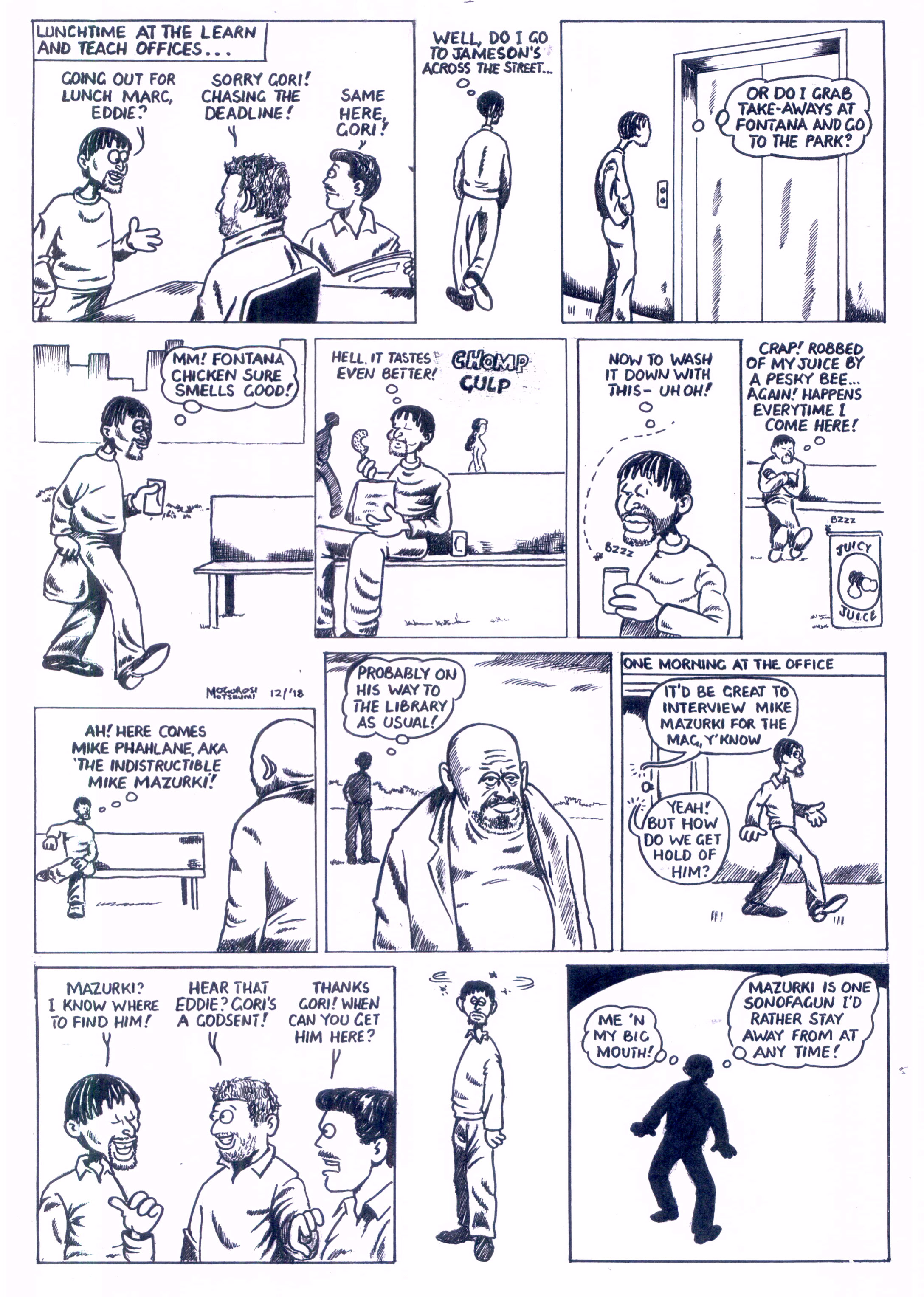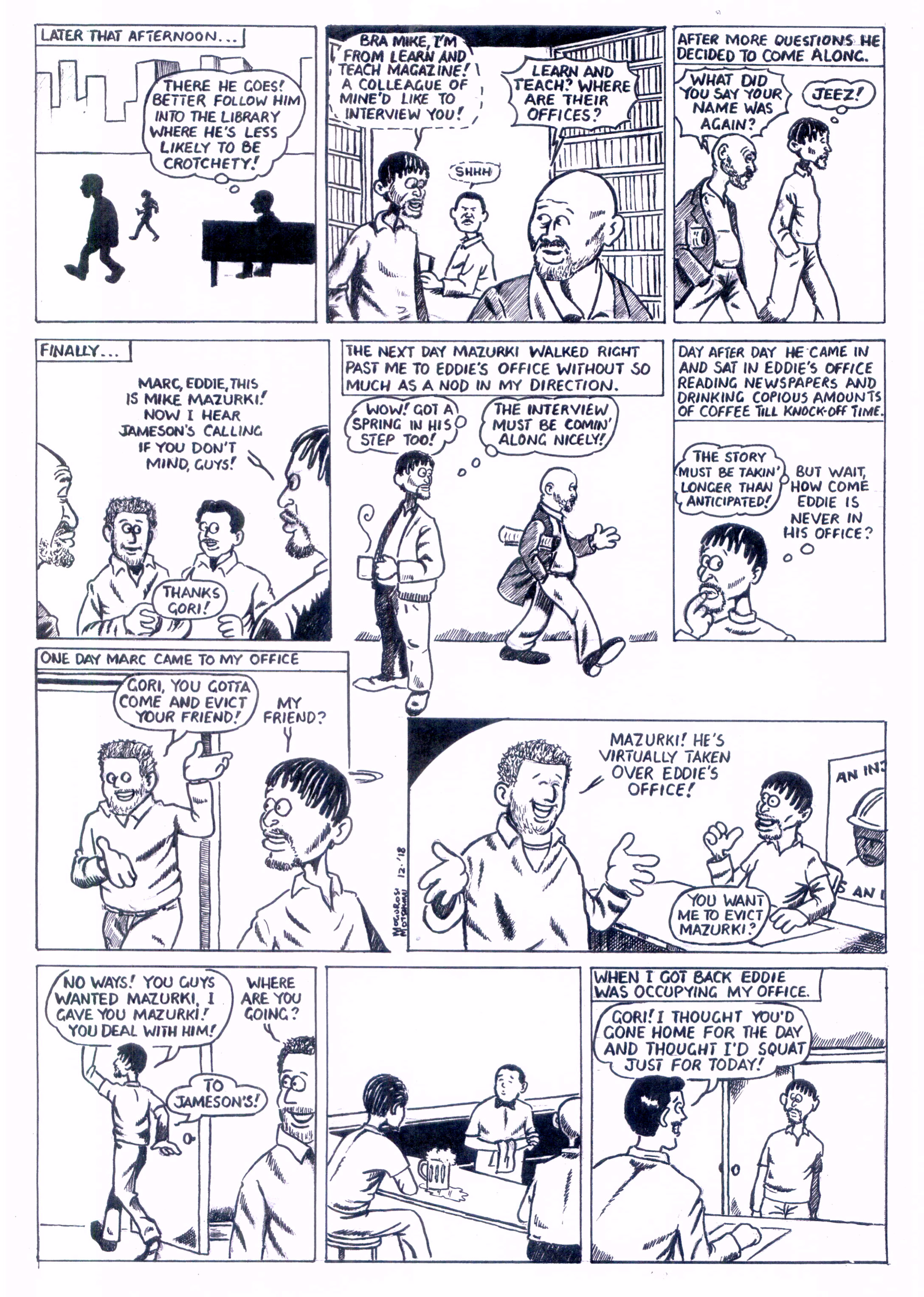I can’t really tell when I first met Mike Mazurki. He just seems to have always been there, always had a newspaper or book tucked under his arm in a jacket one size too big, waddling to either the library or one of the newsrooms in downtown Joburg or Braamfontein. He was known as “The Indestructible Mike.”
Mike was an enigma. One day he’d talk to me like I was his long-lost nephew, the next I was a fly that had fallen into his glass of hooch. I tried to avoid him when I could because he was so idiosyncratic. But we in the younger generation were also drawn to him because he was so knowledgeable.
The episode described in this story took place around 1988, when I was a cartoonist and writer for Learn and Teach magazine.


It was only in the course of drawing this comic that I learned that “The Indestructible Mike” had been diagnosed with amnesia in the early eighties, and that, penniless and homeless, he had recently passed away. He was from a generation of hardworking and hard-drinking journalists and I had always attributed his erratic behavior to excessive drinking. It’s only now when reading eulogies online that I realized he had mental issues.
In the fifties and sixties, Zonk was the chic magazine of the black readership, covering sports, music, and fashion; Mazurki, as editor and jazz critic, had real influence. He had a knack for naming people and places, coining names like “Rockville,” a township in Soweto, and indeed, he claimed to have named Soweto itself. He gave Johannes Adolphus Botha the name “Dollar Brand,” which must be worth something, since that’s the name South Africa’s premier piano export came to be known by (though he later changed it to Abdullah Ibrahim when he embraced Islam). He named two songs after Mazurki and his daughter, “Bra Timing from Phomolong” and “Tintinyana,” respectively; “Bra Timing” was Mazurki’s other nickname and Phomolong was the township where he stayed.
Mogorosi Motshumi, comics, Mike Tsehla Phahlane, Mike Mazurki, South Africa, Soweto





